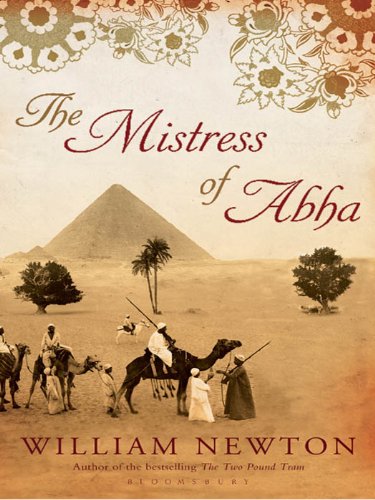The Mistress of Abha
Ivor Willoughby was a boy when the British military posted his father to Arabia, and for reasons that are revealed only at the story’s end, Robert Willoughby returns home only once after that. Unsure of his father’s fate, young Ivor is determined to search for his father and prepares himself by studying classical Arabic, Farsi and Urdu. Then, with help from an Oxford professor, he gains a position at the Locust Research Bureau in Cairo.
Detailing his travels in the first person, Ivor quickly captures the reader as he navigates the strife that dominates the desert tribes. Nasranys (Christians) are not welcome in this land, and Ivor’s life is in constant danger as he searches for the people who knew his father. Almost imperceptibly, the adventure shifts from the son to the father. Through interviews and eventually a set of unsent letters, we learn the details of Robert Willoughby’s life as the Bedouin Ullobi. It was a life he freely chose at the expense of the family he left behind in England.
William Newton has given this story an interesting set of woman characters both in and out of the harem. No matter the restrictions on their public sphere of influence, these women played very credible roles in their societies.
This is an enjoyable, well-told adventure story with lots of action. It also manages to impart insights to the unsettled politics of Arabia in the 1930s. For anyone interested in an even more detailed account of Bedouin life and culture, Doughty’s Travels in Arabia Deserta is a classic text although not without controversy. Doughty never hid that he was English or Christian and yet managed to travel and live among the Arab tribes from 1876 to 1878. The other classic text is of course, T. E. Lawrence’s Seven Pillars of Wisdom which also has its critics.










